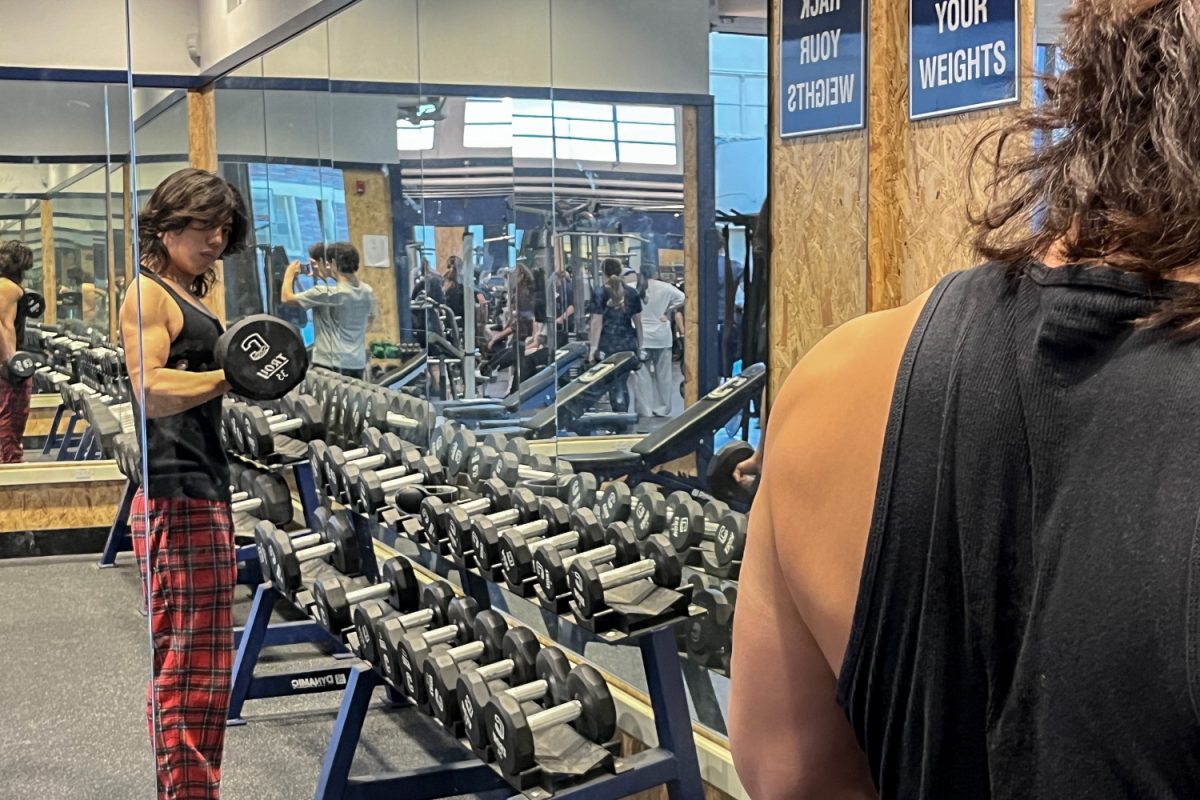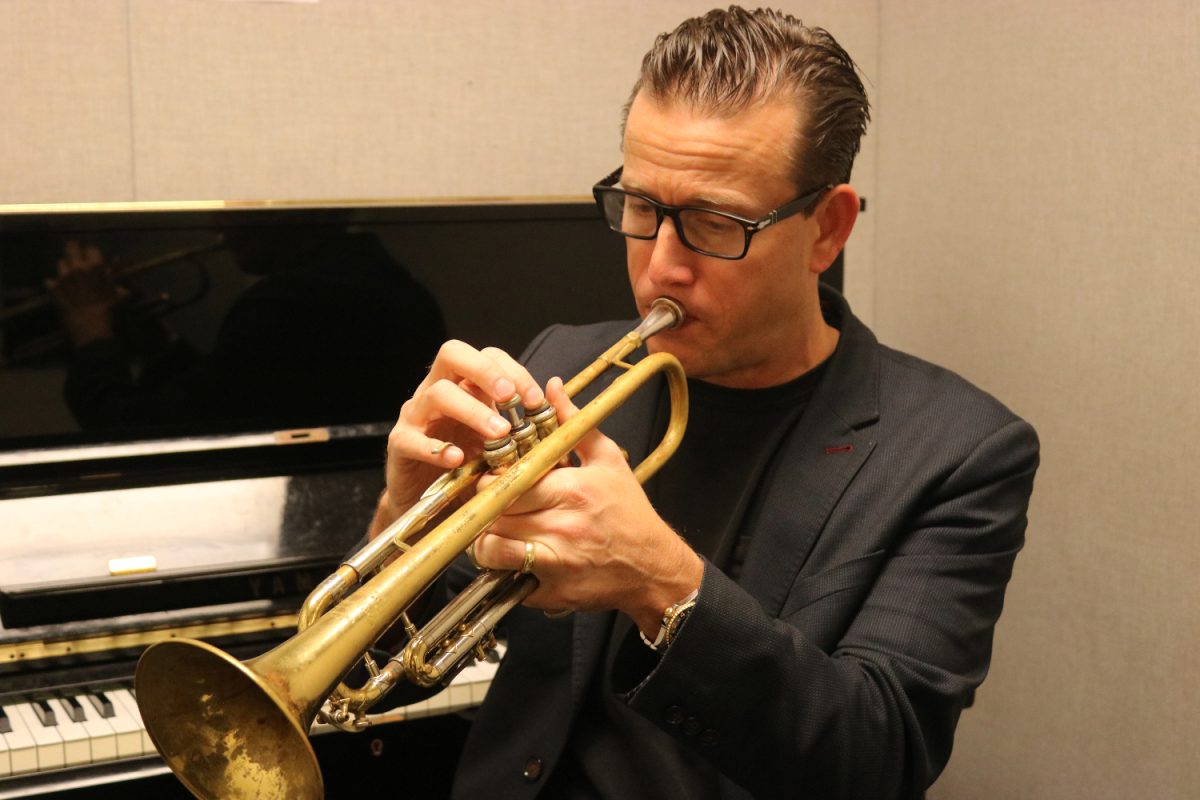The Asian child silently hands their parents a transcript of their grades. Their mother scans the paper, her face slowly contorting into a frown as her eyebrows furrow in disappointment. The child’s heart sinks deeper and deeper as she scolds them about the B they received in their math class.
Society often views Asian American families as austere households with parents who solely focus on their child’s grades and don’t tolerate disobedience. Despite this stigma, this is usually not the case.
Today, Asian American parents have taken more modern approaches to raising a child, instilling more practical values than academic standards.
“Be a good person, be helpful, be sympathetic,” Mindy Chiang, a Chinese teacher, said. “It matters to me more that [my son] knows how to be a good citizen. And I also think it’s important, at least for now, while he can be innocent, to enjoy his playtime.”
Asian American parents have long been stereotyped as harsh, “tiger-like” figures in their child’s life, solely focused on building a solid future for them, no matter the sacrifice.
“The way that Asian parents act is like a byproduct of how they were raised at a time where the family structures were pretty solid and stratified,” Paul Zhou, a sophomore, said. “The way that they were brought up is: grow up, get into a good college, go overseas, get a degree and work for the rest of your life.”
Despite this old parenting style, Asian American families have begun to incorporate more Western ideals into their lives. According to the American Psychological Association, studies show that it is less common for Asian families to employ higher standards.
“I don’t necessarily think the unbalanced focus on monetary reward is the best thing for the child because there’s only so much they can get from money,” Yang said. “I’d rather let [my child] be happier and be able to make her own decision, but a lot of the skills that help her make a decision is likely something that the parents can help with.”
While some parents still choose to instill values in their children that are beneficial to their success, others are more lenient.
“I come from a very Americanized family,” Xavier Lem, a Carlmont sophomore, said. “So my parents are relatively laid back about academic pressure, and I would say they aren’t the main source of the pressure I face, academically and socially.”
Another example of this contrast pertains to the goals and expectations for their child. Asian parents are stereotypically authoritative about their children’s life choices, but in reality, many are much more supportive of whatever path their child chooses to take.
“[My parents] are not like the normal stereotypical Asian parents that just want you to do well in school because they knew that school wasn’t my thing,” Daniel Arakaki, a Carlmont senior, said. “When I was younger, I always did tennis and music, so they always pushed me to do that.”
Asian American parents may not control their children’s decisions, but they believe devotion/hard work leads to success.
“I would say that the Asian parents of the students that I have in my class, for the most part, have very high expectations of their children in terms of academic performance,” Chiang said. “Although, I also have students who just have high expectations of themselves, regardless of whether or not parents explicitly express their expectations.”
Nevertheless, some aspects of those traditional views are still reflected in some parenting techniques today to ensure their child’s success. To achieve their goals, some parents implement controlling methods.
“They enforce those rules by monitoring [things],” Jessie Yuan, a sophomore, said. “They use things to track what I do on my computer.”
These parenting techniques also apply to the child’s future career paths. Assumptions about Asian parents have shown that they push their children towards specific jobs.
“There’s more focus on certain occupations, and I think it’s related to the culture,” Sherry Yang, a data science manager, said. “This is a symptom of some underlying value alignment within Asian families. But I think it’s pretty common for Asian families to have a specific preference for occupations.”
These jobs include being a doctor or a computer scientist, according to USA Facts, which are high-status, high-paying jobs. Values in Asian households have essential rules: attend a good school, get a good job, make a lot of money.
“The reward a person gets from society takes many forms. Recognition and respect from the community is one thing, and monetary reward is another thing,” Yang said. “The status within the society is one thing, but I think there’s a lot of emphasis on the monetary reward, and that’s part of the drive for these highly rewarding, high-paid jobs.
Even with these points of view leftover from previous generations, the majority of Asian American parents and children have adapted to more modern techniques.
My parents generally stress the importance of happiness above all else. It’s usually in response to self-imposed stress about schoolwork. They always respond by saying, ‘Happiness is the most important thing,’ which I sometimes find difficult to appreciate. Especially in the moment, like having to do schoolwork. — Xavier Lem
However, there is also an overwhelming assumption that Asian students are more academically proficient than other groups, which negatively impacts them in a way where they feel pressured to perform to that standard.
“Coming from a school with such a high demographic of Asian Americans, I have been around so many people who do experience such high expectations and are made to do well in school, by their parents or by other external forces,” Lem said. “I think in order to fit in socially with the school, I sort of feel the need to push myself as well.”
Overall, society’s view on Asian American parents and their children has taken a toll on Asian American students. They feel the need to strive past their limits, which detrimentally impacts their well-being.
“I feel that doing well in school is a necessary part of my happiness,” Lem said. “Without it, I would feel that I don’t have a purpose.”














